Scott MacMillan
December 26, 2013
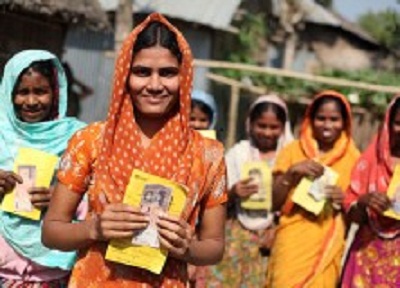
Published by Scott MacMillan at Dec 26 2013
Categories
Modern microcredit, born in Bangladesh, was hailed as an innovative poverty fix when it appeared on the global radar. The United Nations dubbed 2005 “the year of microcredit,” and the following year, Mohammed Yunus and his Grameen Bank won the Nobel Peace Prize. Soon, however, the pendulum of hype swung the opposite direction, as scholars began to question the efficacy of microfinance.
August 6, 2013

Published by Scott MacMillan at Aug 06 2013
Categories
There’s rising momentum in the world today for legal empowerment of the poor. There’s growing recognition that the law need to work for everyone, rich and poor, and that without full legal rights, including access to legal services, a legal identity and property rights, billions will be denied the opportunities they need to lift themselves out of poverty and end systems of discrimination and exploitation.
January 31, 2013
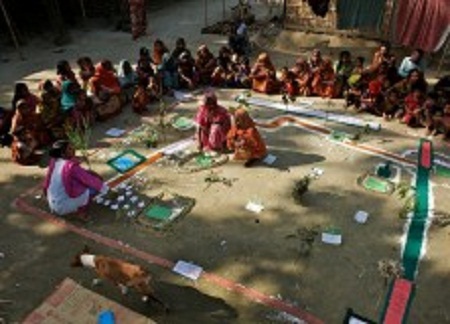
Published by Scott MacMillan at Jan 31 2013
Categories
A group of men and women attend a participatory wealth ranking in Kaposhatia in Pakchanda union in Hossanipur upazila, Bangladesh.(Credit: BRAC/Shehzad Noorani).
"Where are the poor?" asks my colleague Oscar Abello at NextBillion.net, in an article that explains why better targeting of aid and impact investing programs has never been more essential. This is particularly true when it comes to "ultra-poor programs" that have been so successful in addressing the direst forms of extreme poverty.
January 30, 2013
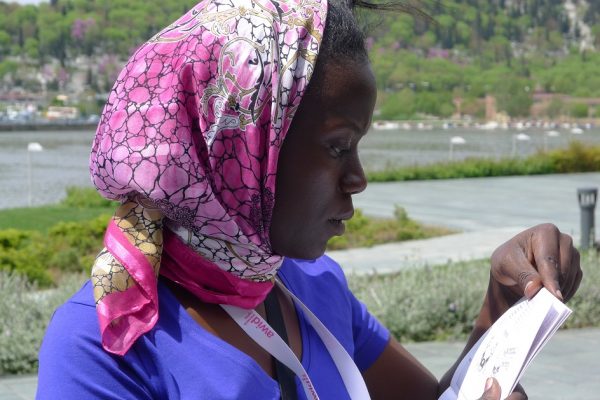
Published by Scott MacMillan at Jan 30 2013
I wrote recently about the impressive return on investment calculated by one World Bank economist based on the per-girl cost of BRAC’s girls’ empowerment clubs, Empowerment and Livelihood for Adolescents. Numbers are one thing, but what really hits home are the results in terms of people’s lives – people like Olivia Kyomuhendo, age 22.
January 28, 2013

Published by Scott MacMillan at Jan 28 2013
Last year, independent researchers from London School of Economics, University College London, and the World Bank completed a two-year impact assessment of a girls’ empowerment program in Uganda, Empowerment and Livelihood for Adolescents (ELA), one of the components of a partnership between BRAC and The MasterCard Foundation.
January 18, 2013
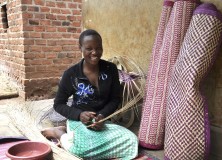
Published by Scott MacMillan at Jan 18 2013
Categories
If you want to help spur the economy and improve people’s lives over the long term in a place like Uganda – the youngest country on earth, with a median age of 14 – then you have to talk and listen to young people like Brenda Masika. That’s one of the key lessons of BRAC’s partnership with The MasterCard Foundation, which has enabled a speedy scale-up in a country facing a massive youth bulge.
January 14, 2013
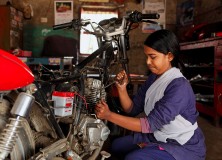
Published by Scott MacMillan at Jan 14 2013
Categories
Khadija’s story, posted in the features section of the BRAC site, shows how vocational training can break down barriers in traditional societies and ultimately lead to families lifting themselves out of poverty.
September 12, 2012
Published by Scott MacMillan at Sep 12 2012
Categories
Innovate frugally, scale up, and remain a learning organization: Those are the three lessons BRAC founder Sir Fazle Hasan Abed delivered to an audience at the World Affairs Council of Northern California last night, as part of a speaking tour sponsored by the Asia Foundation.
November 15, 2011
Published by Scott MacMillan at Nov 15 2011
Categories
Great news from the Bill and Melinda Gates Foundation today. The foundation has announced a grant for BRAC to develop sustainable sanitation delivery models, improving living conditions for over a million of Bangladesh's poorest while raising school attendance levels for girls especially.

